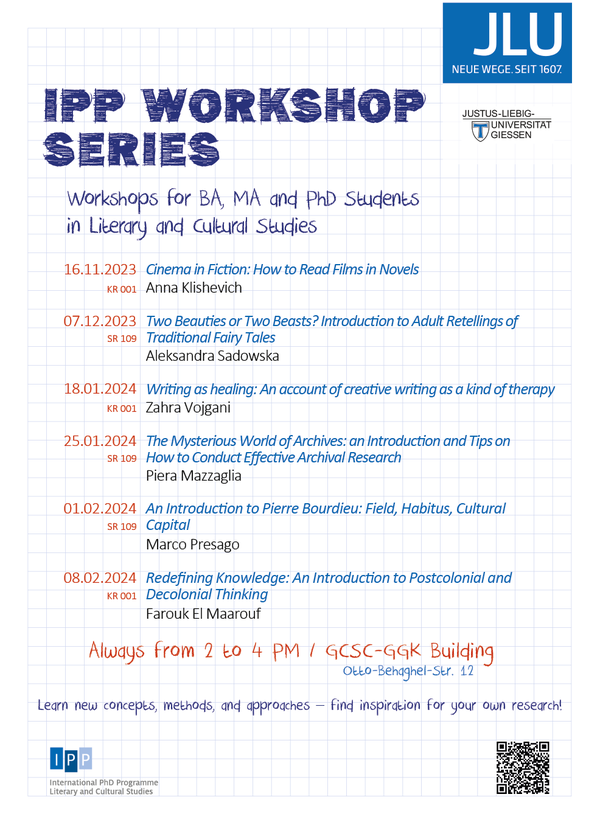Redefining Knowledge: An Introduction to Postcolonial and Decolonial Thinking
- https://www.uni-giessen.de/en/faculties/ggkgcsc/events/semesteroverview/previous/archive/wise2324/ipp-ws-series/redefining-knowledge
- Redefining Knowledge: An Introduction to Postcolonial and Decolonial Thinking
- 2024-02-08T14:00:00+01:00
- 2024-02-08T16:00:00+01:00
There has been great academic interest in the last decades in the poetics and politics of identification in post-colonial societies. As a result, academics around the world locked horns over what it means to be a post-colonial subject; what could be, by dint of an intellectual exercise and practical implementation, a solution to existing and potential divisions and struggles. In this workshop, I want to set in motion a conversation of, around, and about decolonial thinking as a methodological tool where thinking is ‘no longer demonstrative but edifying’ (Vattimo 2002, p.452). The devastating colonial impacts on various regions of the world gave rise to postcolonial thinking that emerged primarily in literary and cultural studies and occupied itself with the analysis and deconstruction of the colonial representation of colonialized societies. After numerous decolonization efforts, postcolonialism faced accusations of indirectly promoting Eurocentrism due to its alignment with postmodernism (Mendoza 2020, p. 44). This led to the emergence of a more interdisciplinary approach known as decoloniality. Decoloniality critically puts into question different aspects of coloniality, including social, economic, political, and cultural dimensions. It casts a magnifying glass on knowledge production and challenges the universalizing tendencies of Western knowledge, among other things. This workshop, thus, is 1) an introduction to decolonial thinking and its latest intellectual state of affairs, and an attempt to situate students amid its different streams of thought. 2) A short comparison between postcolonialism and decoloniality, and 3) a clarification of some of the key conceptual differences between decoloniality, decolonization, postcolonial, and post-colonial, among other things.
Keywords: decoloniality, postcolonialism, knowledge production, universality, colonialism.
// Farouk El Maarouf

